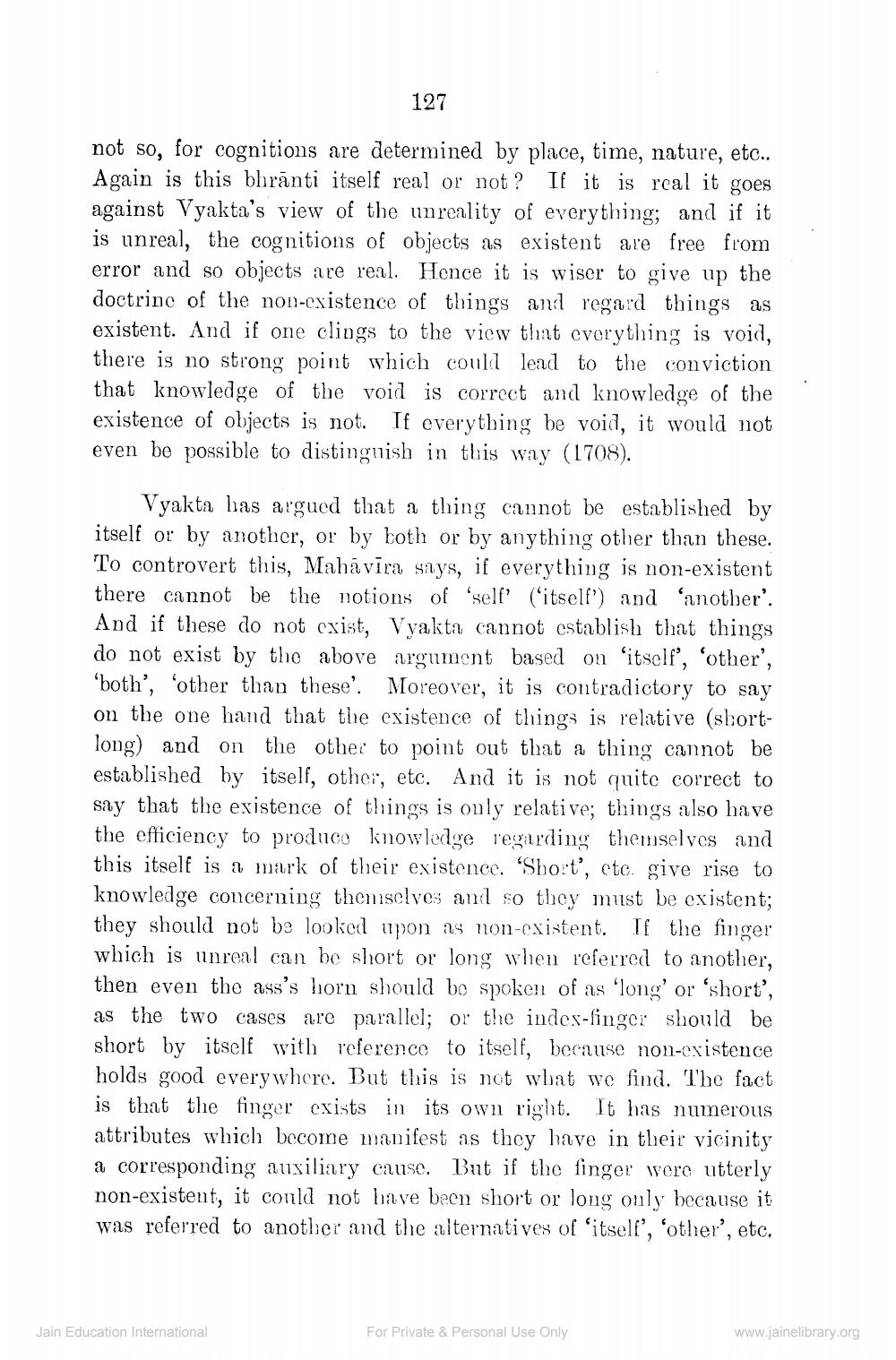________________
127
not so, for cognitions are determined by place, time, nature, etc.. Again is this bhranti itself real or not? If it is real it goes against Vyakta's view of the unreality of everything; and if it is unreal, the cognitions of objects as existent are free from error and so objects are real. Hence it is wiser to give up the doctrine of the non-existence of things and regard things as existent. And if one clings to the view that everything is void, there is no strong point which could lead to the conviction that knowledge of the void is correct and knowledge of the existence of objects is not. If everything be void, it would not even be possible to distinguish in this way (1708).
Vyakta has argued that a thing cannot be established by itself or by another, or by both or by anything other than these. To controvert this, Mahavira says, if everything is non-existent there cannot be the notions of 'self' (itself') and another'. And if these do not exist, Vyakta cannot establish that things do not exist by the above argument based on itself', 'other', 'both', 'other than these'. Moreover, it is contradictory to say on the one hand that the existence of things is relative (shortlong) and on the other to point out that a thing cannot be established by itself, other, etc. And it is not quite correct to say that the existence of things is only relative; things also have the efficiency to produce knowledge regarding themselves and this itself is a mark of their existence. 'Short', etc. give rise to knowledge concerning themselves and so they must be existent; they should not be looked upon as non-existent. If the finger which is unreal can be short or long when referred to another, then even the ass's horn should be spoken of as 'long' or 'short', as the two cases are parallel; or the index-finger should be short by itself with reference to itself, because non-existence holds good everywhere. But this is not what we find. The fact is that the finger exists in its own right. It has numerous attributes which become manifest as they have in their vicinity a corresponding auxiliary cause. But if the finger were utterly non-existent, it could not have been short or long only because it was referred to another and the alternatives of 'itself', 'other', etc.
Jain Education International
For Private & Personal Use Only
www.jainelibrary.org




